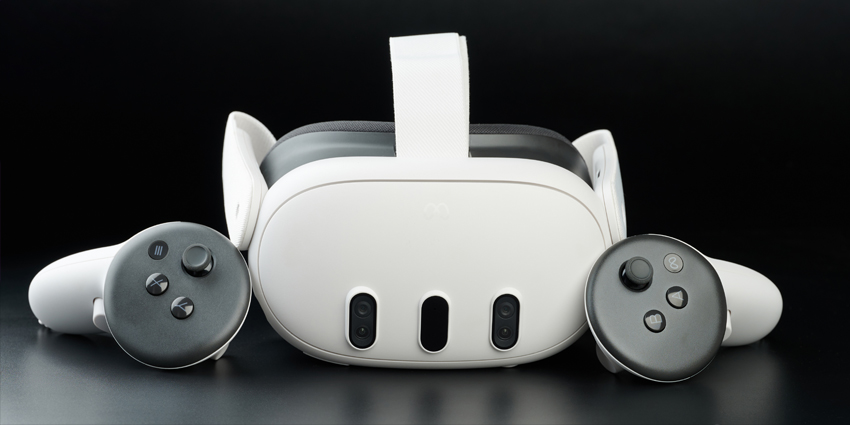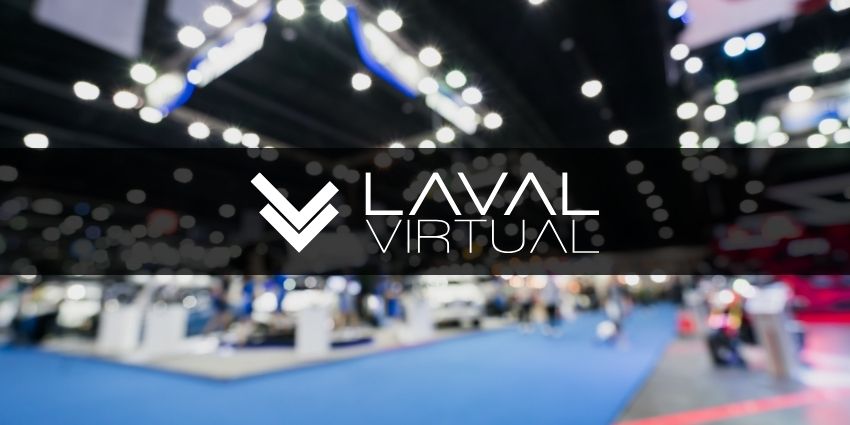The industrial Metaverse is looking to be the XR buzzword of 2024. Since mid-2023, firms like Microsoft and Meta moved towards the wordage following the decline of faith towards the initial Metaverse wave towards the start of the year.
The industrial Metaverse is simply an umbrella term which includes immersive (VR/AR/MR) digital solutions that support workplace use cases such as remote collaboration, design processes, and training. Industrial Metaverse solutions could include XR-related innovations such as digital twins, immersive spaces, AR guidance, and simulations.
Arguably, Microsoft kicked off interest in the industrial Metaverse this year when it started rolling out information regarding its industrial Metaverse roadmap during an online showcase. More recently, at Ignite, Microsoft introduced the first updates to its 2024 roadmap, including avatar, immersive space, and AR guidance solutions.
Following a slow adoption of its Pro headset and workplace products, Meta is joining the industrial Metaverse hype-wave with the firm’s marketing, event, and promotional material promoting the industrial Meteaverse as it rolls out XR products to industry professionals.
Another firm entering the space is Amazon Web Services (AWS), as it builds up its immersive product portfolio, ready for a busy 2024 for the XR industry. AWS is seemingly looking to build its spatial computing portfolio; however, what does the leading firm currently offer?
Introducing the AWS Industrial Metaverse
AWS is currently offering a solid foundation for its industrial Metaverse vision to help enterprise end-users leverage XR technologies like the Internet of Things (IoT), digital twins, and simulations.
AWS industrial Metaverse solutions leverage VR, AR, and MR solutions and partners to provide customers with avenues to explore XR, improving decision-making, facilitating collaboration, and enabling remote maintenance.
Specifically, AWS offers two core first-party spatial computing solutions for enterprises ready on the cloud.
AWS IoT TwinMaker is a service that streamlines digital twin content creation, assisting customers in designing digital representations of large-scale assets like factories, production lines or smaller objects like industrial equipment.
Moreover, the AWS service supports customers using pre-existing data on the cloud and from multiple sources to optimize digital twin content creation. Additionally, AWS IoT TwinMaker allows clients to attach critical data, unifying valuable real-world data with accessible digital twins.
Currently, many enterprise clients leverage the AWS IoT TwinMaker solutions, including Invista, Carrier, and John Holland, with the firm updating the service to entice more end-users to pick up the product.
AWS also offers SimSpace Weaver, which allows customers to create bespoke immersive spaces and simulations. Leveraging its existing cloud infrastructure, SimSpace Weaver can simulate large-scale environments such as cities with crowds.
Additionally, AWS offers partner solutions as part of its industrial Metaverse portfolio, including Mytaverse, SURREAL, and PREVU3D services. Amazon and AWS are looking to expand their industrial Metaverse solutions significantly as the 2024 cycle begins; if successful, the firm could find itself leading the market based on its previous standing as a digital workplace solutions provider.
More on the Industrial Metaverse
Many other firms are also building an industrial Metaverse portfolio. Microsoft has revealed its roadmap for an industrial Metaverse portfolio as part of its AI Cloud Partner Program. The program unites Microsoft and leading technology companies to foster growth and innovation in enterprise-grade AI. As part of this initiative, Microsoft will support efforts to develop industrial Metaverse solutions and related technologies – as the firm believes AI and MR will co-exist.
At Ignite, Microsoft announced some of its first immersive workplace solutions for 2024, aligning with its industrial Metaverse roadmap. Microsoft unveiled new updates for its Teams collaboration platform during the event, including Immersive Spaces and updated Avatars for Teams. Additionally, the company introduced Dynamics Guides 365, a spatial environment that allows workers to access Microsoft collaboration tools, such as Teams, as mixed-reality spatial applications. Although AI integrations are not yet fully developed, based on earlier comments from the company, the technology will soon be more deeply integrated into these tools.
On the other hand, Meta’s President of Global Affairs, Nick Clegg, addressed his firm’s stance on the industrial Metacerse and what Meta is doing to support XR in the workplace and education.
While the recent Connect 2023 event focused on consumer use cases of MR headsets and AR smart glasses, Meta is also committed to supporting European companies that use AR and VR to improve industries and people’s lives.
During the promotional video, Clegg noted that “Metaverse technologies like augmented and virtual reality have the potential to revolutionize the way we work and learn.” Moreover, Clegg explained how European companies use AR and VR today to “improve industries and people’s lives.”
Clegg added:
European business leaders such as Lufthansa, Iveco, Alstorm, and Decathlon are already using immersive technologies to develop products, to train employees, and engage customers. – Others, like virtual medicine, are using Metaverse technologies in groundbreaking ways to support medical professionals, educators, and students in fully immersive digital environments. The impact of the Metaverse is real, and it’s happening today, right now. – As Metaverse technologies continue to progress, more and more opportunities will open up.
Meta and Microsoft are not the only players in the industrial Metaverse; countless other XR firms, such as RealWear and Siemens, are also working to support and develop industrial Metaverse solutions.
However, where will AWS fall into the space? The space is already packed with firms trying to get a leg up and lead the constantly evolving landscape. But if the industrial Metaverse is here to stay, AWS has the assets, contacts, and experience to scale XR into the workplace.
Moreover, with AWS so closely related to consumer technologies, the juggernaut may not be stopping itself from approaching other areas of the XR space.







